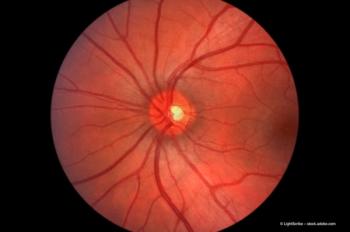
Assessing predictive value of testing
According to this article, not all patients may benefit from routine testing prior to surgery. A better option may be selective screening for those at greatest risk for adverse systemic events.
However, routine testing may not benefit all patients. In some cases, a better option may be selective screening for those who are at the greatest risk for adverse systemic events.
"We believe that our results demonstrate that routine preoperative testing does not measurably improve the safety of vitreoretinal surgery, and that reduction of such testing may considerably reduce healthcare costs," said study author Dr Ajay Shalwala, Wills Eye Institute, Philadelphia, Pennsylvania, USA.
"Our results also suggest that patients with coronary artery disease, asthma and chronic renal disease and those undergoing general anaesthesia are at greater risk of postoperative systemic complications," he said. "Therefore presence of these risk factors should alert physicians to the need for greater preoperative and postoperative monitoring.
"Conversely, the absence of these risk factors may allow physicians to reduce the burden and cost of preoperative testing," Dr Shalwala added.
As with other types of procedures, screening medical tests are routinely performed on patients in preparation for vitreoretinal surgery.
However, the benefit of routine testing is uncertain.
Routine preoperative medical testing prior to elective surgery has been questioned. Some data suggest that there are no significant differences in the rates of either intraoperative and postoperative events between patients who did or did not undergo the standard battery of preoperative testing.
In addition, preoperative testing is expensive and adds to the overall economic healthcare burden.
About the study
In this study, Dr Shalwala and colleagues assessed the predictive value of routine medical testing for postoperative systemic adverse events among patients who were undergoing vitreoretinal surgery.
In a retrospective single centre study, the researchers evaluated the medical charts of 2296 patients who were 17 years of age and older and who underwent vitreoretinal surgery between January 2002 and November 2011 at Vanderbilt University.
The charts for 2215 patients were reviewed for information on baseline comorbidities, preoperative testing and postoperative adverse events that occurred within 30 days of their surgery.
Charts with less than 7 days of documented follow up were excluded from the study.
Logistic regression analysis was performed to correlate adverse events with preoperative testing and comorbidities that were present at baseline.
Within this cohort, 89 patients experienced adverse events and 12 patients had multiple events, for a total of 102 events. Within this subgroup, 73 (72%) of the adverse events occurred within the first 24 hours after surgery, while the remaining 29 (28%) occurred between postoperative days 1 and 30.
Overall, the incidence of adverse events following vitreoretinal surgery in this series was 4%.
Newsletter
Get the essential updates shaping the future of pharma manufacturing and compliance—subscribe today to Pharmaceutical Technology and never miss a breakthrough.




























